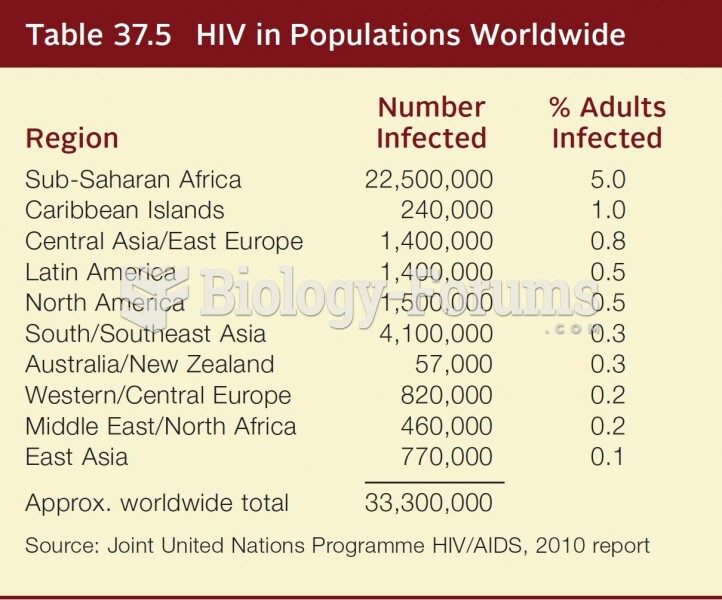|
|
|
Nearly 31 million adults in America have a total cholesterol level that is more than 240 mg per dL.
After 5 years of being diagnosed with rheumatoid arthritis, one every three patients will no longer be able to work.
Adults are resistant to the bacterium that causes Botulism. These bacteria thrive in honey – therefore, honey should never be given to infants since their immune systems are not yet resistant.
Vampire bats have a natural anticoagulant in their saliva that permits continuous bleeding after they painlessly open a wound with their incisors. This capillary blood does not cause any significant blood loss to their victims.
On average, someone in the United States has a stroke about every 40 seconds. This is about 795,000 people per year.







